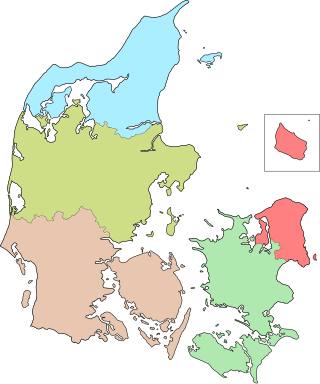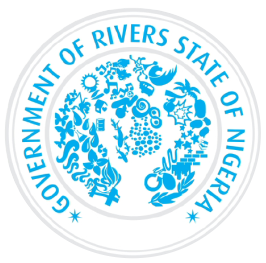Politics in Estonia takes place in a framework of a parliamentary representative democratic republic, whereby the Prime Minister of Estonia is the head of government, and of a multi-party system. Legislative power is vested in the Estonian parliament. Executive power is exercised by the government, which is led by the prime minister. The judiciary is independent of the executive and the legislature. Estonia is a member of the United Nations, the European Union, and NATO.

The Government of the Hong Kong Special Administrative Region is the executive authorities of Hong Kong. It was established on 1 July 1997, following the handover of Hong Kong.

The Courts of Denmark is the ordinary court system of the Kingdom of Denmark. The Courts of Denmark as an organizational entity was created with the Police and Judiciary Reform Act taking effect 1 January 2007 which also significantly reformed the court system e.g. by removing original jurisdiction from the High Courts and by introducing a new jury system.
Manitoba Finance is the department of finance for the Canadian province of Manitoba.

The Scottish Courts and Tribunals Service (SCTS) is an independent public body which is responsible for the administration of the courts and tribunals of Scotland. The Service is led by a board which is chaired by the Lord President of the Court of Session, and employs over 1000 staff members in the country's 39 sheriff courts, 34 justice of the peace courts, the Court of Session and the High Court of Justiciary, and at the service's headquarters in Edinburgh. The day-to-day administration of the service is the responsibility of its chief executive and executive directors. The Scottish Courts and Tribunals Service is also responsible for providing administrative services for the Judicial Office for Scotland, the Office of the Public Guardian, the Accountant of Court, the Criminal Courts Rules Council, and the Scottish Civil Justice Council.

The five Regions of Denmark were created as administrative entities at a level above the municipalities and below the central government in the public sector as part of the 2007 Danish Municipal Reform, when the 13 counties (amter) were abolished. At the same time, the number of municipalities (kommuner) was cut from 270 to 98. The reform was approved and made into a law by the lawmakers in the Folketing 26 June 2005 with elections to the 98 municipalities and 5 regions being held Tuesday 15 November 2005.
Ministry of Justice of Denmark is the Danish government ministry responsible for the general judicial system, including the police and the prosecution service, the courts of law, and prisons and the probation service. In addition, the Ministry is responsible for legislation in the areas of criminal, private and family law, the law of trusts and foundations, nationality law and data protection law. The Ministry of Justice of Denmark might oversee the administration of justice in Greenland.
Law enforcement in Sweden is carried out by several government agencies, under the guidance of the Government of Sweden.

The government of the U.S. State of Oklahoma, established by the Oklahoma Constitution, is a republican democracy modeled after the federal government of the United States. The state government has three branches: the executive, legislative, and judicial. Through a system of separation of powers or "checks and balances," each of these branches has some authority to act on its own, some authority to regulate the other two branches, and has some of its own authority, in turn, regulated by the other branches.

The Government of Uttar Pradesh is the subnational government of the Indian state of Uttar Pradesh with the governor as its appointed constitutional head of the state by the President of India. The Governor of Uttar Pradesh is appointed for a period of five years and appoints the Chief Minister of Uttar Pradesh and their council of ministers, who are vested with the executive powers of the state. The governor remains a ceremonial head of the state, while the chief minister and their council are responsible for day-to-day government functions.

The federal administration of Switzerland is the ensemble of agencies that constitute, together with the Swiss Federal Council, the executive branch of the Swiss federal authorities. The administration is charged with executing federal law and preparing draft laws and policy for the Federal Council and the Federal Assembly.

The Government of Rivers State consists of elected representatives and appointed officials responsible for the government of Rivers State, Nigeria. Rivers State has a population of about 5 million people, and is one of the 36 states that make up the Federal Republic of Nigeria. The state government is composed of the executive, legislative, and judicial branches, whose powers are vested by the Constitution in the House of Assembly, the Governor and the High Court. The judiciary operates independently of the executive and the legislature. At the local level, elected officials are in charge of local government areas.
The Autonomous University of Baja California is a public institution of higher education in Baja California. Established in 1957, UABC has its headquarters located in the city of Mexicali.

The Ministry of Justice is one of the 12 ministries which comprise the Finnish Government. Headed by the Minister of Justice, it is responsible for maintaining the legal safeguards necessary for the successful operation of democracy and fundamental rights of the inhabitants of Finland.

The government of North Carolina is divided into three branches: executive, legislative, and judicial. These consist of the Council of State, the bicameral legislature, and the state court system. The Constitution of North Carolina delineates the structure and function of the state government.

The executive branch of the government of Puerto Rico is responsible for executing the laws of Puerto Rico, as well as causing them to be executed. Article IV of the Constitution of Puerto Rico vests the executive power on the Governor—who by its nature forms the executive branch.
The judiciary of Massachusetts is the branch of the government of Massachusetts that interprets and applies the law of Massachusetts, ensures equal justice under law, and provides a mechanism for dispute resolution. The judicial power in Massachusetts is reposed in the Supreme Judicial Court, which superintends the entire system of courts.

Government of Puducherry is the union territorial government for the union territory of Puducherry, India. It is headed by the Lieutenant Governor of Puducherry. Its capital is located at Pondicherry.

National Institute of Technology Puducherry, is an autonomous public technical and research university located in the city of Karaikal in Union Territory of Puducherry and is a coastal enclave in the basin of river Kaveri within the Nagapattinam District of Tamil Nadu. Founded and Established in 2010, it is one among the 31 National institutes of Technology of India and is declared as an Institute of National Importance by the Government of India under National Institutes of Technology, Science Education and Research Act, 2007.
In the European continental judicial tradition, the national councils of the judiciary are institutions on judicial administration that ensure the self-management of the judiciary and the effective delivery of justice, which are autonomous or independent of the executive and legislature.












